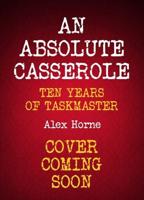Publisher's Synopsis
This historic book may have numerous typos and missing text. Purchasers can download a free scanned copy of the original book (without typos) from the publisher. Not indexed. Not illustrated. 1884 edition. Excerpt: ...ends of justice as those more cumbrous forms, filled with technical jargon, which we practice, and which have descended to us, through a long stream of years, from the time when the vaunted common law attained its greatest vigor. Deeds, modeled after the same forms, marriage contracts, and other private instruments were valid, by being executed before a notary in the presence of witnesses. Judgments and decrees were executed by an order of the captain of the militia, or the provost marshal, and no "stay laws" or "valuation laws" impeded its operation, and no "redemption " after sale. Occasions, however, were not frequent, calling for the exercise of judicial authority or rendering a regular administration of justice necessary, for the inhabitants were generally peaceable, and honest and punctual in their dealings, each one knowing how far it was safe to extend confidence, and the beauties of the "credit system" then but partially unfolded. Trifling matters--such small difficulties as will arise even with the best regulated communities--were usually settled by the mild inter-position of the commandant or of the priest. In those little disturbances which would naturally arise from Antoine's saying hard things of his neighbor, Baptiste, who had killed his dog, or whipped his child, the offended party would carry his complaint to the good cure and in the confessional, or somewhere else, the " tort-feasor" would be required to make the proper atonement. It must not be supposed, however, because the priest was a Jesuit, that his punishments partook of the cruelty of the rack and the inquisition--an additional ave and credo was, in general, sufficient penance. Thus were exercised executive and judicial powers--of legislative, there was none. Their code...

























